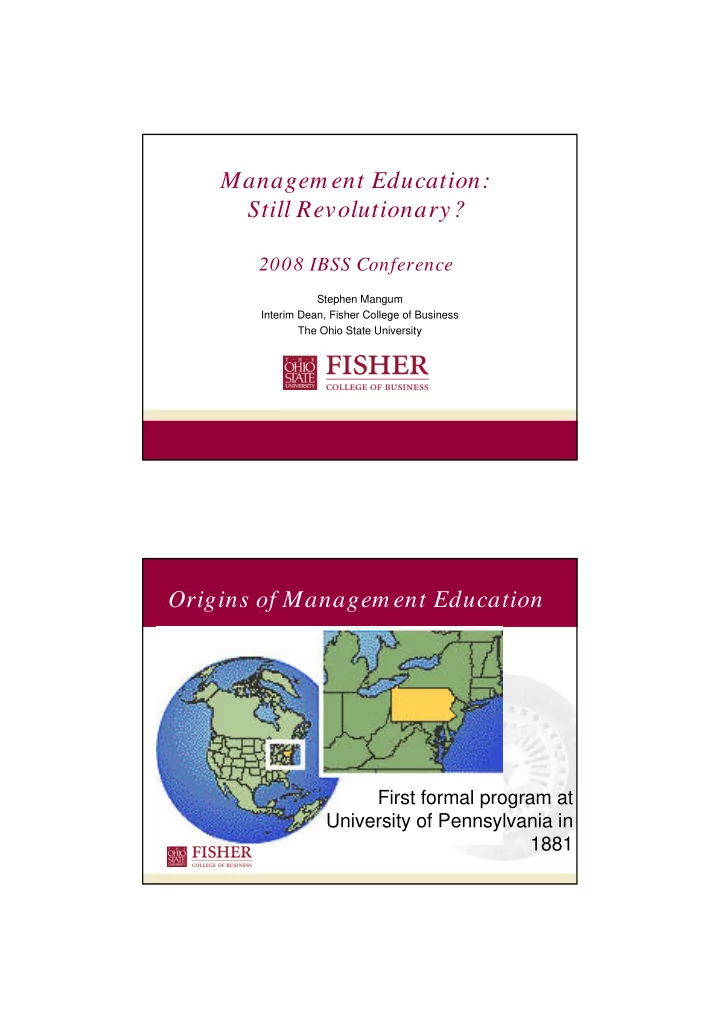

Managem ent Education: Still Revolutionary? 2008 IBSS Conference Stephen Mangum Interim Dean, Fisher College of Business The Ohio State University Origins of Managem ent Education First formal program at University of Pennsylvania in 1881
New Managem ent Ideas: from w here do they com e? -- from sparks of imagination? -- from technological advance? -- from change in organization of work? Technological Environm ent of the U.S. Early 1800’s: Craft Production
Technological Environm ent of the U.S. Mid1800’s: Steam Power Technological Environm ent of the U.S. Late1800’s: Electric Power
Organization of w ork Henry Ford experimented with continuous flow production systems and his engineers redesigned factories around the flow of work “ Principles of Scientific Managem ent”by Taylor Published in 1911 Time & Motion Studies
Technological Environm ent of the U.S. Beginning in the 1970s: The IT Revolution has shrunk the globe in terms of time and space. The IT Revolution 1970s-1980s: revolutionized manufacturing through miniaturization
The IT Revolution 1980s: commoditization of new kinds of financial instruments such as bonds, derivatives & commoditized mortgages The IT Revolution 1990s: commoditization of information directly through the internet and search engines
Consequences: The organization of w ork Work from anywhere Environm ent of w ork “Meaningfulness” of work grows in importance
Sources of com petitive advantage Supply chain linkages as a differentiator New form s of production Computers lead to customized mass production
Innovation + Speed Im plications for Managem ent Education? • Innovative • Nimble & Collaborative • New environments, cultures & languages • Increased STEM linkages • Public-Private • “Energy-Climate Era”
Conclusion
Recommend
More recommend